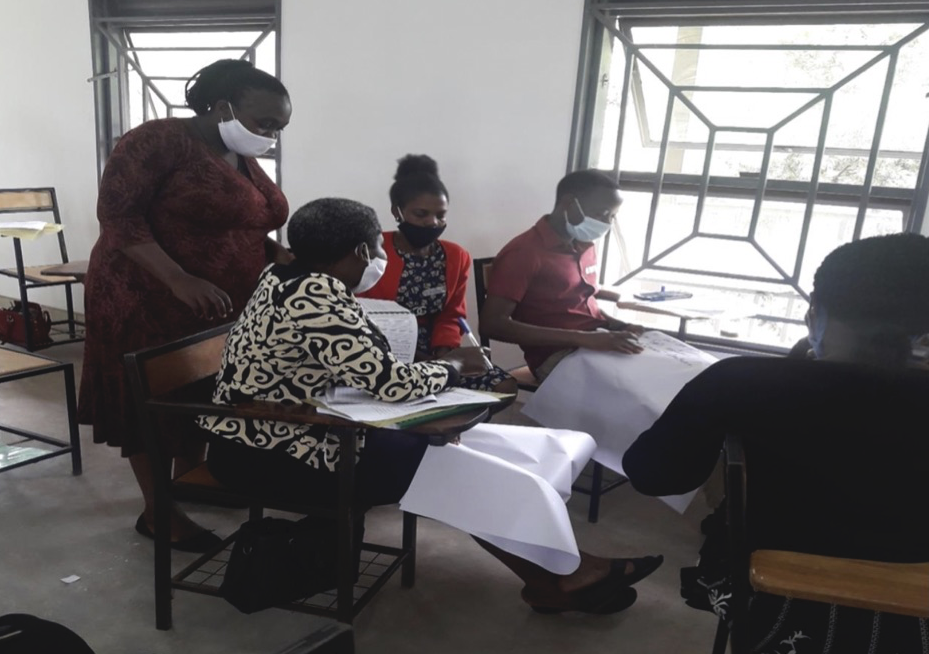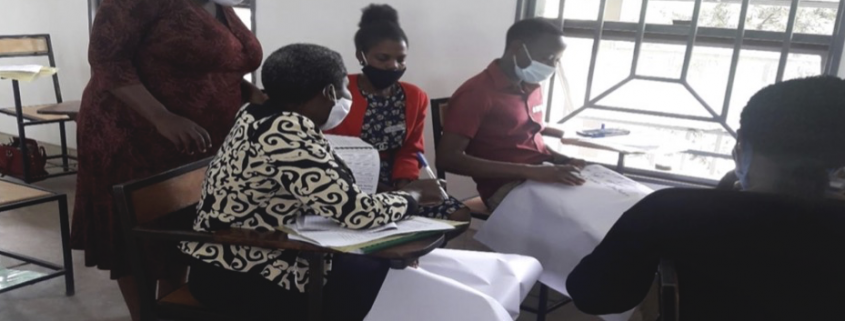More Than 700 people trained in mhGAP, with your support.
Setting The Scene
Have you ever watched “Our Yorkshire Farm” on BBC TV? Ravenseat is a remote farm at the top of Swaledale in the Yorkshire Dales, 30 miles or so from the nearest hospital where farmers Owen and Amanda have brought up their nine children. Although remote, the family have the vehicles to get to the nearest shop or even to the hospital if necessary, except perhaps in the depths of winter. Even so, I am often left wondering what would it be like to be stranded in such a place without transport or access to highly qualified medical care? What would it be like if most of the country was in this situation?
This is the challenge for much of rural Uganda, where patients with all kinds of medical needs not only do not have transport but are often a considerable distance from the nearest hospital. They also lack the money either to get there or to pay for treatment if they able to reach the specialists.
For people with mental illness or epilepsy, this is an even greater challenge. With a shortage of staff with specialist mental health knowledge, patients may struggle even to get an initial diagnosis. Even once they have a diagnosis, they will then need to access and pay for medication on a regular basis. For many individuals and their families this is almost impossible.
What are we doing about this?
Jamie’s Fund is tackling this problem head on! By equipping non-mental health clinicians (nurses, clinical officers and doctors) with the skills to diagnose and treat the more common mental illnesses, they are able to help those in their communities with a mental ill health in a new way. This may allow issues to be addressed at an early stage, before they become major problems.

The training we provide is known as mhGAP* which is a course developed by the World Health Organisation (WHO), for use in low and middle income countries. Its aim is to increase the number of clinical staff who can diagnose and treat mental ill health.
Each mhGAP Course is run at one of our partner hospitals by a small team drawn from local mental health professionals who are mainly nurses. The team uses a mixture of teaching methods to help each trainee to recognise keys aspects of mental ill health and to follow a systematic approach to find appropriate treatments.
A Great Achievement
So far Jamie’s Fund has paid for the training of more than seven hundred people in mhGAP across about half of Uganda. We have funded 25 courses, with each course having between 20 and 40 trainees. This is a huge number and, where this training has been done, the impact has been significant.
Following a recent course at Nkozi Hospital, the Medical Director and CEO, Dr Criscent Tumahaise said this: “I am glad to note that there has been a sharp rise in the ‘keenness’ to identify mental health issues/needs amongst staff; and from records, I see the mental health unit getting a little busier. Today, as I performed the rounds, I was impressed by the way the nurses and the clinicians were assessing all patients for overt, subtle, or potential mental health issues, and identifying mental health needs per patient. This was really impressive and it is definitely due to the recent training. I thank you for your support.”
This story from Nkozi is far from unique, and we have seen the impact across the many hospitals where mental health issues are being recognised more quickly and dealt with more systematically and appropriately.
Training the trainers

Of course, training does not just happen: In order to train people in the hospitals, health centres and village health workers, we needed well-trained trainers. It was also clear to us from the beginning that Ugandans should be trained by other Ugandans and so very early on in the programme we set about training some trainers. This was done at the Ugandan national psychiatric hospital, Butabika and was organised by Joshua Ssebunnya, a good friend of Jamie’s Fund. Three of these courses have been run and we have trained 56 psychiatric nurses and psychiatric clinical officers from across the country to run mhGAP courses. These nurses and PCO’s then support one another in delivering mhGAP across the various hospitals.
What next?
mhGAP now has some momentum in Uganda and hospitals are coming back to us asking for additional courses for their people.
There is also an increasing need to introduce the wider community to some understanding of mental health. In response, Jamie’s Fund has developed a one-day “Community Leaders Sensitisation” course to give a basic introduction to what mental illness is and to show that it can be treated. Many people fear that mental illness is infectious and/or may be due to the ancestors or other causes. Community Leaders Sensitisation courses are currently being rolled out in a number of locations. The plan is to roll the course out more widely towards the end of 2021 at hospitals where we already have a relationship.
Why spend money on training?
A few pounds spent on the healthcare of a single patient can change that person’s life. The same few pounds on training someone in the basics of mental health care can change many, many lives. This is part of the philosophy of Jamie’s Fund and why we are so passionate about training.
The more people who receive training in mental health care, the greater the impact on the medical community and the wider population.
What can you do?
Run over five days, each mhGAP course can cost between £3000 and £5000 and a Community Leaders Sensitisation course is around £20 per person trained. Would you be willing to donate towards this work? Even a few pounds can make a big difference to a lot of lives.
If you would like to make a donation, please click on this link.
Thank you
Hugh Burgess
*Mental Health Gap Action Programme.



